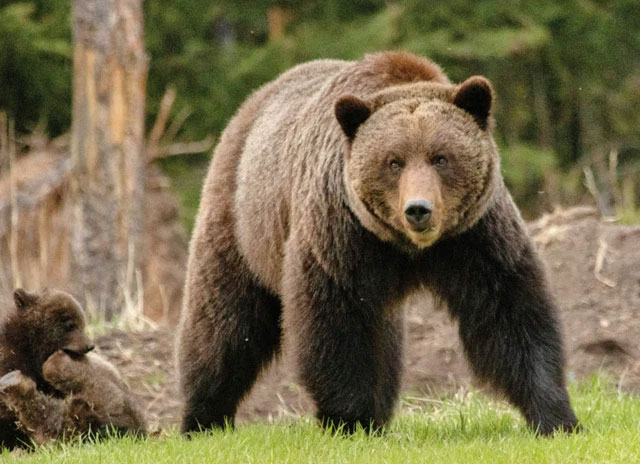A new study has found that climate change may be the cause of the mysterious disappearance of brown bears and ancient North American lions about a millennium ago, prior to the last Ice Age.

Warm temperatures before the last Ice Age significantly affected the flora and fauna of the time.
By sequencing DNA from fossils of lions and bears from North America and Eurasia, a research team from the University of Adelaide discovered that the extinction timing of these ancient animals in regions of North America (particularly the Yukon Territory and Alaska) coincided with changes in vegetation in these areas.
According to scientists, warm temperatures before the last Ice Age may have caused significant changes in the abundance of various plant species, leading to the extinction of some herbivorous species and subsequently their predators, including lions and bears.
Several centuries later, colder temperatures leading to the Ice Age reversed these changes and transformed these areas into a promised land for both herbivores and their predators.

Brown bear (or grizzly bear) disappeared from some regions of North America thousands of years before the last Ice Age.
These findings suggest that past ecosystems were highly susceptible to change and that the richness of different species was very sensitive to climate changes.
Co-author of the study, Dr. Kieren Mitchell, an evolutionary biologist and bioinformatics expert at the University of Otago, New Zealand, stated: “As illustrated in our study of fossil samples, the story did not necessarily unfold that way. Previous research indicated that brown bears (or grizzly bears) disappeared from some areas of North America thousands of years before the last Ice Age. They later reappeared, walking from Russia to Alaska via the Bering Land Bridge.”
Dr. Mitchell concluded: “While many may think that species arrive in an area and stay there, we found that the past involved much more movement, with many waves of dispersal and local extinctions.”
The study has been published in the journal Marine Ecology recently.


















































